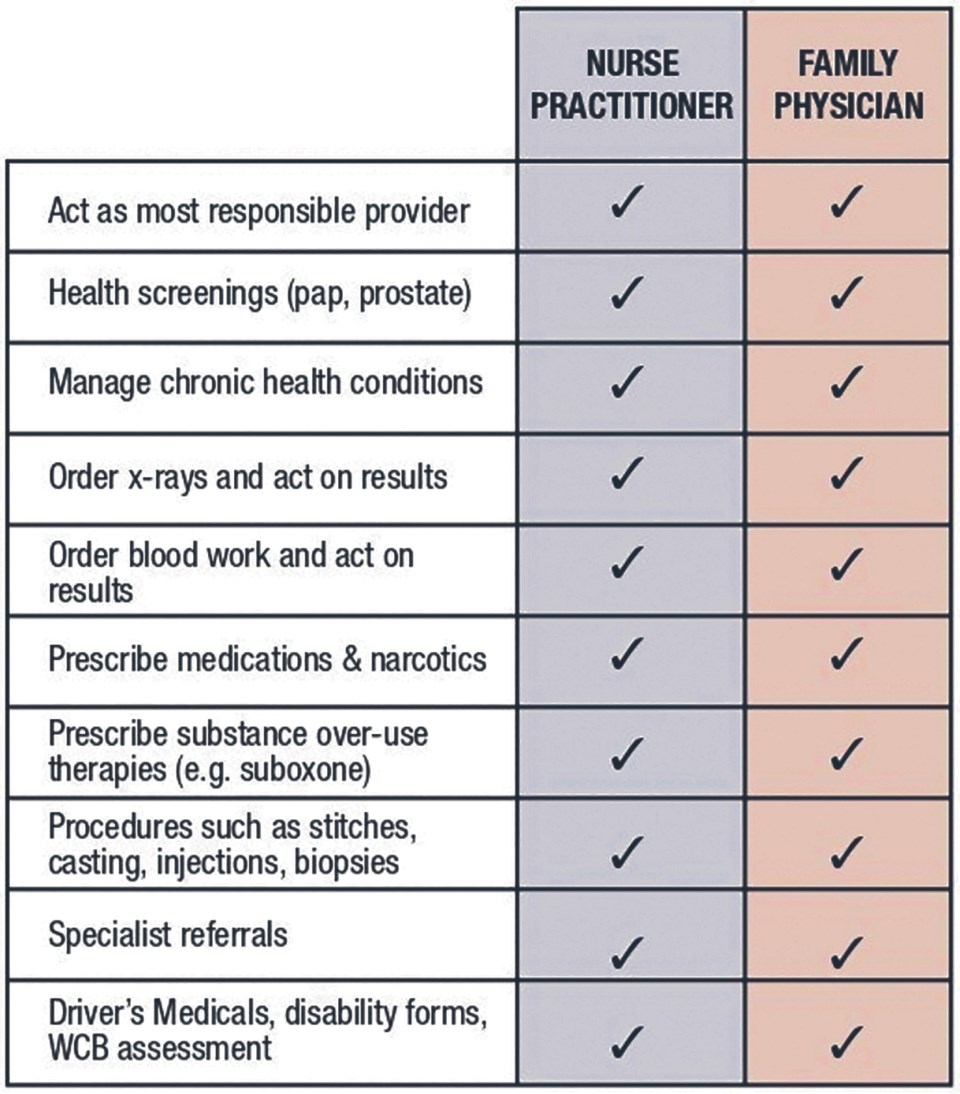ATHABASCA/BOYLE - Nurse practitioners (NPs) could provide regular care for patients in rural areas without a family doctor, all while reducing costs to the government, says the advocacy group representing NPs in the province.
But for that to happen a new funding model would have to be adopted by the Alberta government that would allow nurse practitioners to operate their own clinics, out from under the umbrella of a primary care network, which is how the current system works. and be able to bill Alberta Health on their own behalf,
That was the call members of the Nurse Practitioner Association of Alberta (NPAA) made to the UCP government outside the Legislature in Edmonton Oct. 26. And it’s a topic in which elected representatives recently received an education, at a tri-council meeting of the three Athabasca-region municipalities, where representatives of NPAA also provided a presentation.
“We are only able to be paid as an employee of a business, so we can be hired by a primary care network and be paid as a nurse practitioner to serve the primary care network’s patients,” NPAA president Susan Prendergast told those who assembled at the legislature Wednesday morning. “Many employees that are in most primary care roles actually cannot look after their own patients. They share patients with other providers and that limits access to those that are unattached.”
The NPAA says one in four Albertans are without a family doctor and instead rely on walk-in clinics and emergency departments which makes for less than optimal care for patients and leads to inefficiencies in the system.
Nurse practitioners are graduate degree level health professionals, capable of delivering comprehensive health care and could potentially take more of the workload off physicians with whom they collaborate by conducting comprehensive health assessments, treating and managing chronic illness, ordering and interpreting diagnostic tests and prescribing medications.
Instead of multiple short visits to address individual issues, NPs are able to spend more time with patients and address multiple issues more completely in one or two longer appointments, the group’s website states.
“Currently, we’re limited to working in a restricted manner for a wage that undermines our significant education experience and scope,” Prendergast said. “We’ve asked for a salary-based model, so that we are able to continue to provide comprehensive, holistic, non-episodic care if necessary. But we are asking for equitable reimbursement … That does include overhead, because if a PCN wishes to employ a nurse practitioner or have us join their team, we need to be able to contribute financially.”
The Village of Boyle is all for it, having approved a letter of support for the advocacy group’s efforts at the Oct. 19 council meeting.
“We were very interested in how NPs could support community care practices that have struggled to fill empty primary health care provider roles and provide options for extended hours of service in rural communities such as our own. The use of NPs within our community health care delivery system can help reduce the strain that currently exists within our health care system, but it can also provide Albertans with some cost savings,” the letter from mayor Colin Derko reads.
“The Village of Boyle supports the Nurse Practitioner Association of Alberta’s proposed Alternative Relationship Plan (ARP) reimbursement model to Alberta Health as a means of integrating NPs into community-based practice. The ARP funding model will better position NPs to spend additional time to work for patients with more complex medical needs compared to existing fee-for-service delivery models. It is council's position that the utilization of NPs can be one of the tools that can strengthen rural Alberta's health care system.”
As of May 2022, there are 750 NPs registered in Alberta, according to the NPAA.



